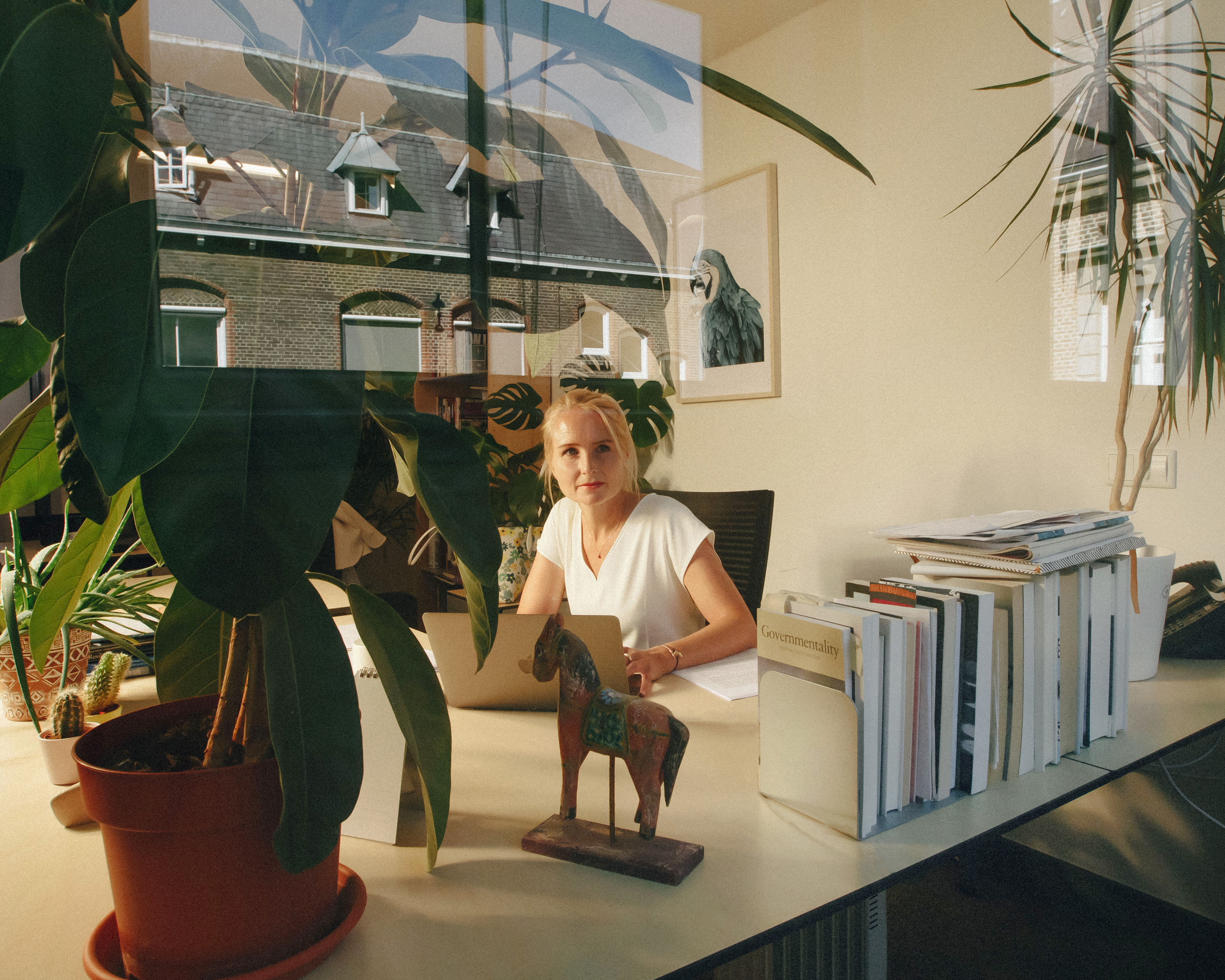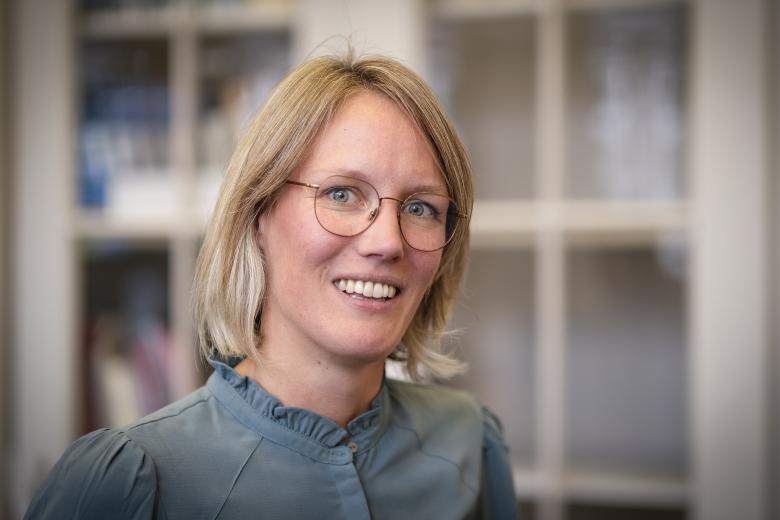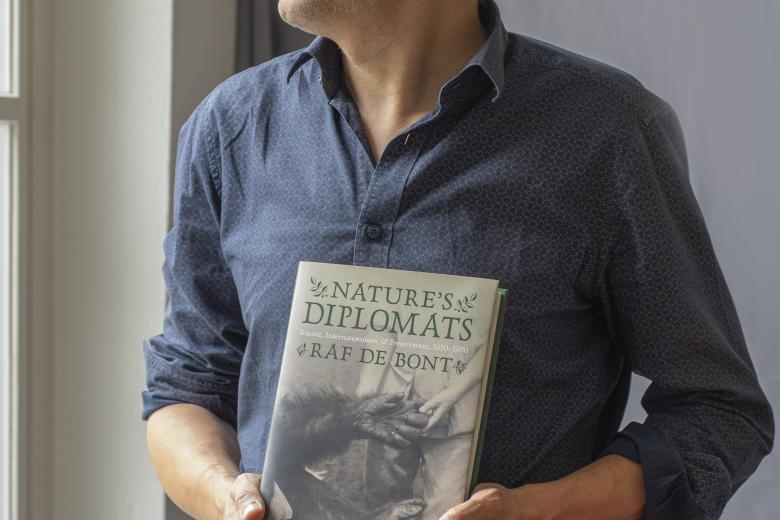Sorting through democracy’s arsenal
From polarisation, misinformation and populists at home to geopolitical pressure from abroad: European democracy is feeling the strain. In an effort to uphold and expand one of its core values, the EU is financing a research project on the promotion of democracy. Professor Giselle Bosse, an Eastern Europe expert at FASoS, leads the work package ‘Democratisation and economic modernisation in authoritarian and hybrid regimes.’
Earlier this year, the EU awarded a Horizon grant worth €3 million to a consortium of 14 universities for a project called ‘Embracing change: Overcoming obstacles and advancing democracy in the European neighbourhood’ (EMBRACE). So where is this European neighbourhood? “I’m not overly keen on the name,” Bosse says. “But you can think of all the countries around the Mediterranean and the former Soviet countries.”
Her part of the project revolves around economic modernisation and its interaction with democratisation. The focus is on authoritarian and hybrid regimes, the latter combining democratic traits (e.g. frequent and direct elections) with autocratic ones (e.g. political repression). “We’ll explore whether the EU’s democracy-promotion tools are still up to the task, and how they need to be adjusted in a constantly changing global context.”
Naïve economic beast
Shouldn’t countries democratise themselves? “Not everyone wants to become like the EU—and that’s perfectly legitimate,” Bosse says. In her view, the EU has fallen for the naïve belief that democracy flows logically from commerce. “The EU is inherently an economic beast that approaches the rest of the world through trade agreements. But does this alone actually promote democracy?”
Historical context is crucial. “Countries that started out fairly autocratic after the Cold War—think Azerbaijan, Belarus or Turkmenistan—have pretty much remained on that track.” Ukraine, Moldova and Georgia, however, had already started to develop democratic systems by the time the Soviet Union collapsed. “Here you see a steady but uneven improvement.”
The two big roadblocks, she says, are Eastern Europe’s deeply ingrained corruption problem and state capture by oligarchs, who impede reform processes through political influence or dominance of the media. “Ukraine, for example, had great difficulties developing a public prosecutor’s office that could reign in the oligarchs’ monopolies.”

The Prematurian candidate?
Now the EU is offering Ukraine candidate status not only to boost democratic reform in the country, but also to make a political statement. “Ukraine isn’t suddenly ‘more ready’ to join the EU.” Even those countries that previously acceded to the EU fell short on the reform indicators set out in the EU’s Copenhagen criteria from 1993, Bosse says.
“Not even the Netherlands is implementing all of the rules and regulations—take the lagging food-safety standards due to the agricultural lobby.” EU membership is by no means a panacea for Poland’s legal issues, the situation in Hungary or corruption issues in general. “But there’s an overall trend towards the better. If you look at press freedom, Estonia and Lithuania are now ranked among the top in Europe; far ahead of the Netherlands.”
As an example, Croatia’s candidature lasted over 10 years, and it had the advantage of not being at war. “Candidates are not expected to fulfil all the membership criteria already. Under its association agreement, Ukraine already implemented many reforms, particularly in banking and public procurement. They still only score 3.2 out of 10 for corruption [10 being the least corrupt]—nothing to be proud of—but Poland was at 3.6 and Romania 3.1 the year before joining.”
Close to home
For her research, Bosse has visited Ukraine many times. “The Maidan, or independence square, where more than 100 people died fighting for democracy and freedom, left a strong impression on me.” The current Russian invasion has hit hard. “I recognise all the places in Kyiv they show on the news.”
Bosse speaks of friends and colleagues who are unable to leave the country because of conscription, who have relatives stuck in war zones, or whose relatives have been killed or reported missing. “Everyone has a story like that. I got to know many Ukrainians when we were students. Now there’s this massive rupture in their lives.”
What worries Bosse most is that ‘the West’ is gradually losing interest in the war. “International media coverage has gone down markedly in the past two months. Ukrainian flags are disappearing from windows and flagpoles, donations are decreasing. That makes a project like EMBRACE all the more important. We’re working together with scholars from Ukraine to analyse how the EU can best support the country’s reform efforts in the coming years, and to ensure that Ukraine and its people stay high on the agenda of EU policymakers.”
Text by Florian Raith

Also read
-
“Politicians are making fewer false promises, but it is still politics after all”
A stop to migration? Setting aside the nitrogen regulations? Radically countering internationalisation in higher education? Politicians regularly make great pronouncements. To what extent are these promises realistic? Dr Karin van Leeuwen, lecturer of European Political History at the Faculty of Arts...
-
How wild are “wild animals” still in the time of zoos, nature reserves and breeding programmes?
Is an elephant in Artis Zoo just as “wild” as an elephant on the African savannah? What place do animals have in a world that is increasingly shaped by humans? Why does the presence of a few wolves in the Netherlands trigger so many negative emotions, while Dutch people donate money en masse to protect...
-
Why ChatGPT has generated so much hype
While the discourse around ChatGPT has probably started reaching saturation point, it’s worth pointing out how few of these discussions are actually about the chatbot itself. From being too quick to accuse students of cheating, to underestimating what humans can do, to the perils of following the hype...